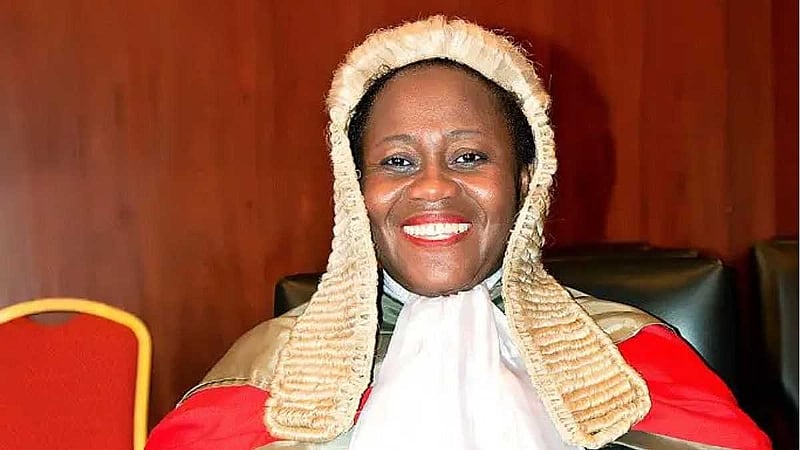Allegations of Compromised Integrity in Chief Justice Removal Inquiry Spark Controversy
A petition submitted to President John Dramani Mahama by former New Patriotic Party (NPP) parliamentary aspirant, Alfred Ababio Kumi, has ignited a firestorm of controversy surrounding the ongoing inquiry into petitions for the removal of Chief Justice Gertrude Araba Esaaba Sackey Torkornoo. Kumi’s petition alleges a serious breach of judicial ethics and conflict of interest involving members of the five-member investigative committee and the legal counsel for one of the petitioners, potentially jeopardizing the integrity and fairness of the entire process. The allegations center on a purported meeting at an Accra restaurant shortly after the committee’s inaugural session, where three committee members, Justices Gabriel Pwamang, Samuel Adibu-Asiedu, and Yonni Kulendi, were allegedly observed dining with Thaddeus Sory, the legal representative of a petitioner seeking the Chief Justice’s removal. This alleged interaction, coupled with claims of past judicial bias and personal ambitions, has cast a long shadow of doubt over the committee’s ability to conduct an impartial investigation.
Kumi’s petition meticulously details the alleged incident at Santoku Restaurant on the evening of May 15, 2025. He contends that Justices Pwamang, Adibu-Asiedu, and Kulendi were seen dining with Thaddeus Sory, the legal counsel for one of the petitioners seeking the Chief Justice’s removal. This alleged meeting immediately following the committee’s first sitting raises serious concerns about the potential for improper influence and the premature discussion of sensitive information related to the ongoing inquiry. The petition suggests that discussions overheard at the restaurant pertained to the inquiry, further fueling suspicions of impropriety. Kumi argues that this alleged interaction undermines the impartiality of the process and erodes public confidence in the committee’s ability to conduct a fair and unbiased investigation.
The petition goes beyond the alleged restaurant meeting, painting a broader picture of potential bias within the committee. Kumi asserts that Justice Pwamang has a documented history of ruling in favor of the same petitioner currently represented by Mr. Sory, raising questions about his objectivity in this specific case. Furthermore, the petition alleges that all three justices present at the alleged dinner – Pwamang, Adibu-Asiedu, and Kulendi – had previously expressed aspirations to become Chief Justice. This claim introduces the possibility that personal ambition and potential resentment towards the current Chief Justice might influence their judgment and compromise the integrity of the inquiry. Kumi argues that these combined factors create a strong perception of bias, regardless of whether any actual impropriety occurred.
Kumi’s petition paints a stark picture of a potentially compromised investigative process, arguing that the alleged ethical breaches and conflicts of interest have irrevocably tainted the committee’s integrity. He warns that allowing the inquiry to proceed with the current composition risks reducing it to a mere "sham," undermining the principles of fairness and due process. To restore public trust and ensure a just outcome, Kumi calls upon President Mahama to take decisive action. He urges the President to dissolve the existing committee and reconstitute it with members whose impartiality is beyond reproach. This, he argues, is the only way to salvage the credibility of the inquiry and ensure that the Chief Justice receives a fair and unbiased assessment of the allegations against her.
The gravity of the allegations and the potential ramifications for the judiciary have generated significant public interest and debate. The call for the committee’s dissolution has sparked discussions about the importance of maintaining judicial independence and upholding the highest ethical standards within the legal system. The President’s response to this petition will be closely scrutinized, as it will set a precedent for how such allegations are handled in the future and will significantly impact public confidence in the integrity of judicial processes. The future of the inquiry and the Chief Justice’s fate now hang in the balance, awaiting the President’s decision.
This controversy underscores the critical need for transparency and impartiality in judicial proceedings, particularly those involving high-ranking officials like the Chief Justice. The allegations raised in Kumi’s petition, whether ultimately proven or disproven, highlight the vulnerability of the judicial system to perceptions of bias and the importance of safeguarding against even the appearance of impropriety. The ongoing debate surrounding the committee’s composition and the calls for its dissolution serve as a poignant reminder of the fragility of public trust in institutions and the constant vigilance required to maintain the integrity of the judicial process. The President’s response will be a crucial test of his commitment to upholding the principles of fairness and justice within the Ghanaian legal system.














